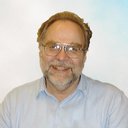George joined the physics faculty at UofT in 1971 after his undergraduate degree at Mount Allison, Ph.D. at Johns Hopkins, and postdoctoral work at SLAC. He joined the established “bubble chamber” experimental work at Toronto, but also helped in moving the group’s efforts over the next decade into “counter” experiments, first at Argonne National Laboratory, then Fermilab. These experiments used as detectors scintillators, wire chambers and calorimeters, triggered and read out with fast electronics. At Fermilab he collaborated on a large spectrometer, some components of which were designed and fabricated at Toronto, running first in a photon beam, then a hadron beam. This was perhaps the first really large experimental facility at Fermilab and it produced a wealth of data on the newly found particles containing a charm quark. Both the production processes and the decay lifetimes were accurately measured, providing important tests for understanding QCD, the complex theory of the strong interaction.
The enormous data rate stored to tape from this facility triggered George’s interest in large-scale computing, and he helped develop a system networking parallel processing units for analyzing the data at Fermilab and Toronto. The success of these early systems led him to question the wisdom of acquiring large main-frame computers for the university, and he was highly active in advocating cheaper parallel computing solutions for intensive research computing in the 1980s and 90s.
George joined the faculty association and was its long-time president until his retirement in 2012. He devoted himself to many aspects of faculty dealings with the administration, and was particularly active in matters concerning pensions, arguing strongly over many years for improved management of the pension plan.
Outside the university, George is a legendary figure in canoeing circles, owing to his yearly long trips since the 1960s covering all of northern Canada and most of its rivers. These trips included friends, colleagues and family members, but some were solo. He once dragged a toboggan across Labrador in March, tenting along the way with a carried wood stove for warmth and cooking. He has grown a small gathering of enthusiasts in his home in winter in the1980s into the annual Wilderness Canoe Symposium, which takes place on a weekend every February in Toronto and attracts about 800 like-minded adventurers from across North America and beyond.

